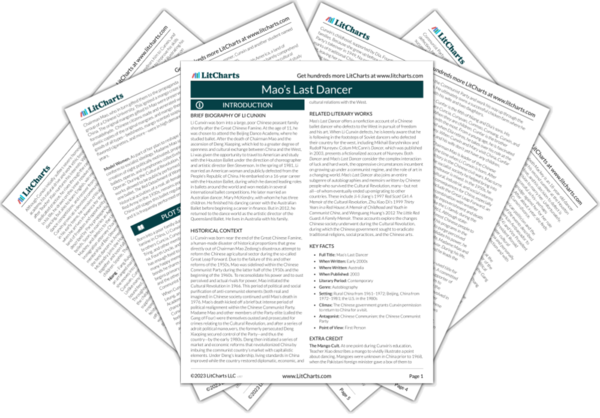Dinner offers yet another clue that the Party fails to live up to its socialist ideology in many ways: wanting to create a class of worthy and impressive dancers, the school ensures that they get the choicest foods. On the one hand, their decision makes sense, given the extreme physical demands of dance, as the book points out. But, on the other hand, it privileges one class of students over the other—precisely the kind of inequality socialism is supposed to correct. In any case, Cunxin can’t enjoy the privilege, at least not yet; separated from his family, he struggles to control his emotions of loneliness and loss.
